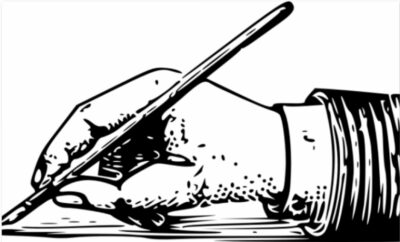This story starts in February of 1765.
At that time, England’s treasury had been wrecked by cost overruns from a hard-fought victory in the French and Indian War a few years earlier. And lots of folks felt that, if their American colonists were the primary beneficiaries of that victory, they should have to pay for it, whether they liked that or not.
In Parliament, an MP named Charles Townshend – whose name would become synonymous with the taxation of the colonies – rose in Parliament and said, “Will these Americans, children planted by our care, nourished up by our indulgence until they are grown to a degree of strength & opulence, and protected by our arms, will they grudge to contribute their mite to relieve us from the heavy weight of that burden which we lie under?”
At which point another MP rose by the name of Isaac Barre. Here was a man who had been born in Dublin, enlisted and fought in America on the staff of General James Wolfe, and who had witnessed Wolfe’s death at the final victory in the Battle of Quebec. During that struggle, Barre had taken a bullet to the right cheek, leaving him disfigured across half his face and blind in one eye. But the man had a gift for rhetoric, and he replied:
“They, planted by your care? No! Your oppressions planted them in America. They fled from your tyranny to a then uncultivated and unhospitable country where they exposed themselves to almost all the hardships to which human nature is liable… actuated by the principles of true English liberty, they met all these hardships with pleasure, compared with those they suffered in their own country, from the hands of those who should have been their friends.
They, nourished up by your indulgence? … as soon as you began to care about them, that care was exercised in sending persons to rule over them, in one department and another… to spy out their liberty, to misrepresent their actions and to prey upon them; men whose behavior on many occasions has caused the blood of those Sons of Liberty to recoil within them.
They protected by your arms? They…have exerted a valour amidst their constant and laborious industry for the defense of a country, whose frontier, while drenched in blood, its interior parts have yielded all its little savings to your emolument. And believe me, remember I this day told you so, that same spirit of freedom which actuated that people at first, will accompany them still… as truly loyal as any subjects the King has, but a people jealous of their liberties and who will vindicate them, if ever they should be violated.”
A month later, Parliament passed the Stamp Act, requiring the colonists to pay a tax on anything printed, including not just letters but legal documents, playing cards, newspapers, you name it.
In August, a group of protesters met in Boston under a large elm they called the Liberty Tree, where they hung up and burned an effigy of the colonial tax collector. And then a mob of over a thousand people attacked his home.
And so the pattern was set. Over the next eight years, as Parliament rolled out various taxation acts, protests against “taxation with representation” would continue unabated in Boston. Violent actions would be coordinated by a secret society which included merchant John Hancock, lawyer James Otis, silversmith Paul Revere, newspaper publisher Benjamin Edes, and others, led by a rabble-rousing brewer named Sam Adams.
Perhaps in tribute to Isaac Barre, they called themselves, the “Sons of Liberty.”
All of which led up to a moment 250 years ago this month. In November 1773, the Sons of Liberty in Boston were busy prepping their next protest. They had learned that Parliament had recently passed the latest in a long list of taxations, a nasty thing called the Tea Act…
And so the Sons were getting ready to receive the first tea ships that were on their way to Boston…
And they had cooked up an interesting idea for how to give those ships a proper welcome to America…
They’ll arrive in December.

Mike Keeler Mike Keeler


